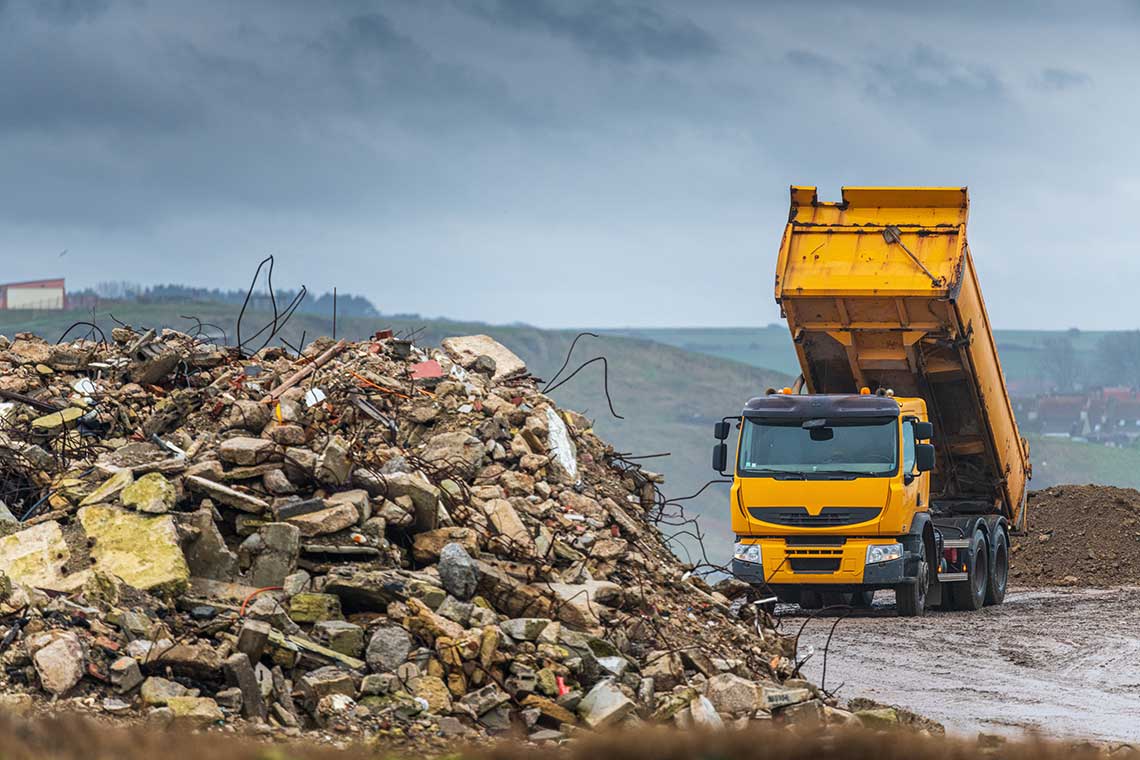
Construction sites are well known for creating massive amounts of debris in the process of building or adding on to already existing structures. From breaking down walls to adding on extra rooms to a home or building a structure from the ground up, there is no shortage of debris that will pile up. Contractors require a variety of materials with which to complete projects, but what happens to the leftover materials that aren’t used?
Unfortunately, unused construction materials often go to waste and are taken away right along with the debris from the job when these materials could be used for a future project. Here are the 5 best tips for disposing of construction materials properly:
- Properly account for needed materials
- Recycle and reuse materials when possible
- Identify waste that is able to be disposed of
- Designate waste areas at the job site
- Donate or save unused materials
Properly Account For Needed Materials
Before you begin your project, taking the initiative to properly account for materials your project requires is an important part of cutting down on material waste. While you may have to account for some extra materials in case of human error or unforeseen events, it’s important to keep your calculations for extra within a reasonable amount. Not only will it save on costs, but it’s an important way to do your part to reduce waste.
Recycle And Reuse Unused Materials
Once your project is complete, take inventory of any leftover materials that can be used for future projects. Damaged or vulnerable materials should be disposed of properly, either by recycling any items that can be recycled or by hauling unusable materials to the dump. If you have unused doors, windows or roofing supplies, these can all be saved for appropriate future projects.
Identify Waste That Is Disposable
Construction waste that cannot be recycled or reused should be safely disposed of at the completion of a project. Materials that are toxic may be harmful to your employers and the general population. This includes untreated wood and pallets, materials with asbestos, old carpet and bathtubs, sinks and toilets, all of which cannot be reused or recycled and should be disposed of properly.
Designate Job Site Waste Areas
At the start of any construction project, it’s important to designate waste areas. Having a specific plan in mind for how you’ll handle trash from used materials or debris that builds up during the job will help to keep your job site clean, not to mention more efficient. At the end of your project, you’ll be able to have the rubbish conveniently transported to the dump site.
Donate Unused Material
At the completion of a project you might find a number of materials that may seem useless for your purposes, but could be exactly what someone else needs. Donate these items to local nonprofits that help families in need find the right building materials or take them to a thrift store that accepts building supplies. By donating your unneeded materials you not only cut down on waste, but your donations will benefit the next person who is able to use them.
Dumpster Rental For Construction Projects
When you’ve got a big job to do, you need a dumpster big enough to meet your needs. Dumpster rental for your construction site is the best option for a contractor who wants to make sure that rubbish and debris are properly cleaned up and able to be easily removed from the job site. Sweet Dumps is Fort Worth’s most trusted dumpster rental service. We make renting a dumpster for construction projects convenient and easy and take care of dumping it for you after the project is complete. Call Sweet Dumps today at 817-677-0040 to reserve your dumpster!
